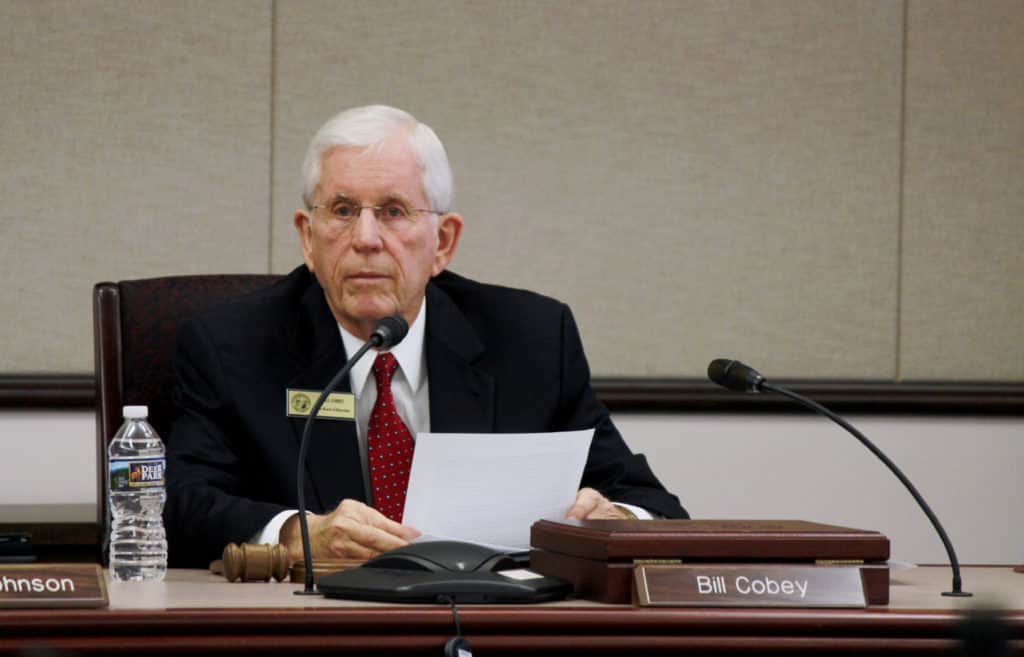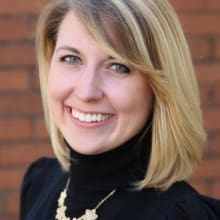

The North Carolina State Board of Education last month used a rare exemption to go behind closed doors and vote on a lawsuit against the state.
Board members have yet to disclose which members supported and opposed the lawsuit, a move that’s at odds with public meeting standards, said Jonathan Jones, director of the Sunshine Center of the North Carolina Open Government Coalition.
The board voted in closed session Dec. 28 to contest House Bill 17, legislation that, in part, strips certain administrative powers from the board and gives it to the state’s new school superintendent, Mark Johnson.
Under open meetings law, most public votes are held in open session, with just a handful of exceptions, Jones told Carolina Journal. Because legal discussions are protected under attorney/client privilege, a board can go behind closed doors to discuss an issue.
But voting records should be disclosed, even those from closed sessions, because doing so isn’t likely to “frustrate the purpose of the closed meeting,” he said.
“The law doesn’t explicitly prohibit votes in closed session, it just really limits the circumstances where they are appropriate,” Jones said. “And I think there’s at least a [legal] argument that that vote needed to be in closed session and withheld from the public up until the point where the lawsuit was actually filed.”
“Under [the usual] rules of order, you would record who was dissenting, and who was in favor of a particular decision,” Jones said. “I think that would call for a disclosure of how each member of the state board voted.”
Jones, a Durham County assistant district attorney from 2012-14, earned his law degree from the University of North Carolina at Chapel Hill. He worked for six years as a reporter in Maryland, Virginia, and North Carolina. Jones teaches communications at Elon University, specializing in transparency and open government laws.
CJ tried multiple times to access the SBE’s closed session voting record. SBE board Chairman Bill Cobey confirmed the closed-session vote, but he declined to disclose the voting record, citing attorney/client privilege. A majority of board members voted for the suit, he said.
CJ also contacted former North Carolina Supreme Court Justice Bob Orr, the board’s lawyer for the H.B. 17 suit, who redirected questions to the SBE’s four staff attorneys. All were contacted by email but none had responded by press time.
“That is almost more concerning to me than the fact that they voted in closed session,” Jones told CJ. “The one thing that the meetings law is clear on is that closed session minutes should be detailed as such that a person who was not there can follow along.”
The minutes from the SBE’s Dec. 28 meeting fail to include details about the closed session. The document says members “went into Closed Session to discuss matters of attorney/client business on confidential and privileged matters.”
The minutes immediately skip to a record of adjournment.
An open government guide compiled by Gov. Roy Cooper during his time as state attorney general says, “every public body is required to keep full, accurate minutes of all portions of all official meetings, including closed sessions. … [T]hese minutes are public record, subject to public inspection and copying.” The guide exempts minutes that would compromise confidential information or operations.
While Cooper’s document is largely silent on voting records, it does specify that public bodies may not use secret ballots, and that, in the case of written ballots, “the minutes of the meeting must show the vote of each member who votes; the written ballots must be made available for public inspection.”
Lt. Gov. Dan Forest, a member of the state board who supports H.B. 17, has spoken out against suing over changes to the roles of the state board and the superintendent. Forest was present for the board’s Dec. 28 vote, as was former state Superintendent June Atkinson, a Democrat, who last year lost her seat to Johnson, a Republican.
CJ requested a record of the vote from Forest’s office but did not get it.
Political arguments surrounding H.B. 17 complicated an already contentious transition for Johnson, 33, who served on the Winston Salem/Forsyth school board but never has held statewide office.
Political considerations often sway governing boards to move contentious discussions behind closed doors, Jones said. It’s a normal reaction, but it’s also wrong, he concluded.
“It’s not necessarily nefarious … but when I do hear about problems with public bodies and open meetings law, it’s often about this kind of discussion — something that’s going to be politicized. And, for whatever reason, the board is trying to have a public policy discussion behind closed doors — which is exactly what the open meetings law is intended to prevent,” he said.
A court date for the lawsuit may be set Friday, Orr said.


